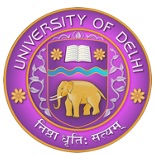DUET MCA Question Paper with Answer Keys 2019-20
 Delhi University Entrance Test (DUET) 2019-20 MCA Question Paper with answers DUET MCA Question Paper 2019-20 with solution you can download it in FREE, if DUET MCA Question Paper 2019-20 in text or pdf for DUET MCA Question Paper 2019-20 Answer Keys you can download DUET 2019-20 page also just Go to menu bar, Click on File->then Save.
Delhi University Entrance Test (DUET) 2019-20 MCA Question Paper with answers DUET MCA Question Paper 2019-20 with solution you can download it in FREE, if DUET MCA Question Paper 2019-20 in text or pdf for DUET MCA Question Paper 2019-20 Answer Keys you can download DUET 2019-20 page also just Go to menu bar, Click on File->then Save.
DUET MCA Question Paper with Answer Keys 2019-20
Delhi University Entrance Test (DUET) 2019-20 MCA Question Paper with Answer Keys Free Download PDF is available in www.oldquestionpapers.net which has been provided by many students this DUET 2019-20 paper is available for all the students in FREE and also DUET MCA Question Paper 2019-20 fully solved DUET with answer keys and solution.
You can get daily updates on DUET 2019-20 from www.oldquestionpapers.net here you can also check similar links for other related study materials on DUET MCA Question Paper question bank 2019-20 is also available in English and Hindi Language.
EXAMPLE QUESTIONS
Q1. In C language find the odd man out:
- 1. while – statement
- 2. switch – statement
- 3. for – statement
- 4. do-while – statement
Q2. A group of students decided to go on picnic and planned to spend Rs. 6000/-. Four of them did not go on picnic. As a consequence each of the remaining had to contribute Rs. 400/- extra. The number of students who went on picnic are:
- 1. 6
- 2. 10
- 3. 8
- 4. 4
Q3. The code of TIGER is VMMMB and the code of DOG is FSM. What is the code of FLY?
- 1. HPE
- 2. GOD
- 3. HOE
- 4. GPE
Q5. If Laugh is to Joy then Cry is to _______________.
- 1. Panic
- 2. Sorrow
- 3. Sad
- 4. Tragic
Q6. Find the ODD man out:
4 – 16 – 256,
5 – 25 – 625,
7 – 49 – 343,
8 – 64 – 4096.
- 1. 5 – 25 – 625.
- 2. 8 – 64 – 4096
- 3. 7 – 49 – 343.
- 4. 4 – 16 – 256.
Q7. The next term in the series: 4, 14, 45, 139, ? is:
- 1. 517
- 2. 522
- 3. 422
- 4. 417
Like so much else in the world’s largest democracy, household finance in India is unique. There is, for example, a strong tendency to keep wealth in physical assets – gold and property. Levels of pension wealth are worrying low, as is take-up of all types of insurance, even in areas which are prone to natural disasters. When emergency expenditures are necessary, for example, for health reasons, there are high levels of reliance on unsecured debt from non-institutional sources.
Why are these issues important?
For one, we are sitting on a demographic time-bomb. The number of Indians over the age of 60 has hit an all-time high, with the most recent figures showing that this demographic comprises 8.6 percent of the population, with a climbing age dependency ratio (currently at 14.2 percent). We can expect this elderly cohort to grow rapidly in coming years. Indians have traditionally shunned pension plans in favor of traditional arrangements in which the younger generation takes care of their elders. But these traditional structures are under increasing pressure, putting families in a potentially vulnerable position.
For another, the lack of widespread insurance can see the victims of tragic or unfortunate circumstances forced into unregulated emergency borrowing, often from non-institutional sources, at potentially punitive rates. The steps in the recent budget towards universal health insurance are a welcome step (if implemented appropriately), consistent with the recommendations of our committee, but there is much more to be done here.
A third issue is that we have a tendency to invest heavily in physical assets such as gold and property. Steps to encourage the financialisation of savings are therefore critical. Viewed in this light, the introduction of the long-term capital gains tax is a step backwards, especially given how responsive Indians are to tax incentives.
Q8. Mark the statement that is NOT true:
- 1. Indians, as a rule, like to invest heavily in physical assets such as gold and property.
- 2. In case of emergency, people like to depend on unsecured debt from noninstitutional sources.
- 3. Only in areas prone to natural disasters do people take up all types of insurance.
- 4. The numbers of elderly people is growing rapidly.
Q9. ‘Indians have traditionally shunned pension plans in favor of traditional arrangements.’ What does ‘traditional arrangements’ mean?
- 1. Trusting your children to take care of you in your old age.
- 2. Cash at home
- 3. All types of insurance.
- 4. Loans from non-institutional sources.
Q10. Why does the author say ‘the introduction of the long-term capital gains tax is a step backwards’?
- 1. People in India are averse to paying taxes.
- 2. All of these
- 3. Government instruments of investment will become less attractive for people.
- 4. It could make people put more faith in traditional avenues of investment.
DUET MCA Question Paper with Answer Keys 2019-20 Download PDF File:
|
Sr. No. |
Papers Name | PDF Files |
| 1. | Master of Computer Applications (MCA) |
Similar Pages…..
See Also……
